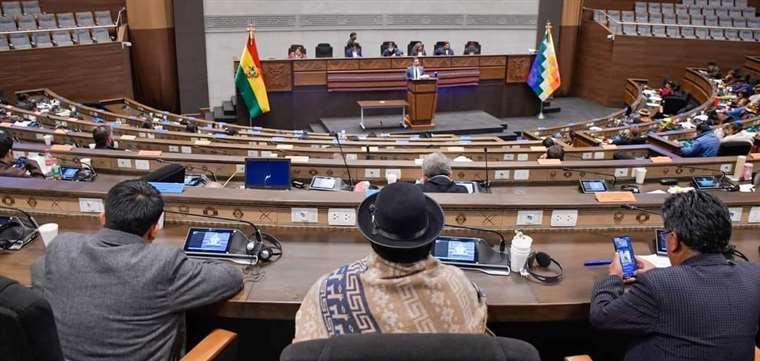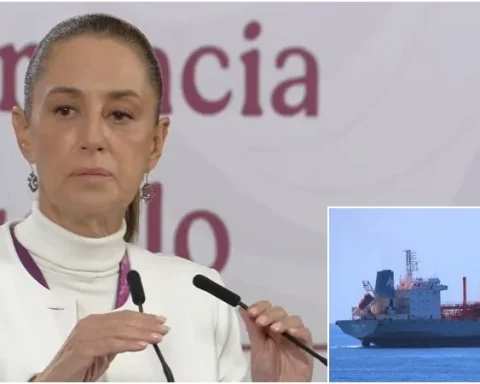June 27, 2023, 23:21 PM
June 27, 2023, 23:21 PM
The constitutional sentence 0020/2023 published in April of this year declared as unconstitutional three articles of Law 1350, “Law that regulates the effects of censorship determined by the Plurinational Legislative Assembly” and that now they authorize the president of the State not to dismiss the minister censured in the Legislative Assembly. PTherefore, Luis Arce is not obliged to remove his Minister of Government, Carlos Eduardo Del Castillo.
“Declared the unconstitutionality of the arts. 3.III, 4.I, and 4.II and III of the Law Regulating the Effects of Censorship Determined by the Plurinational Legislative Assembly”, indicates the fourth point of sentence 0020/2023 that observes the censorship of ministers and that gives the president the last word on the matter.
Deputy Rolando Enríquez Cuéllar was who protested against the original norm, which was promulgated by Eva Copa in September 2020. Until then, a minister who was censured was dismissed, but the next day he was repossessed. Now, with the sentence that Cuéllar achieved, Del Castillo can retain the position.
ANDl MAS drafted a Law that prevented the Executive Branch from reinstall the censured minister“The president or the president of the State, may not designate as a minister or minister the citizen who had been censured or censured by the Plurinational Legislative Assembly, in the three (3) years after their dismissal”, stated the law .
Now with the constitutional sentence, The Head of State may dismiss and reinstate Carlos Eduardo Del Castillo if he so decides, since you have the law on your side. On Tuesday night, the Plurinational Assembly determined the censure of the Minister of Government, by 101 votes against 42. In this way, the opponents achieved their objective after four attempts to remove the minister from office.
The Political Constitution of the State (CPE) in its article 158 it provides for the censorship of the minister and also regulates the effects of this provision, something that the president of the State is obliged to comply with.
Let us remember that it is the powers of the Assembly to “question, at the initiative of any assembly member, the ministers of State, individually or collectively, and agree to censure by two thirds of the members of the Assembly. The interpellation may be promoted by any of the Chambers. The censorship will imply the dismissal of the minister or the minister”, indicates paragraph 18 of the aforementioned article.
But, under the new scenario achieved with the April constitutional sentence, the political sphere awaits with great expectation what will be the proceeding of Luis Arceregarding one of his management strongmen.
















